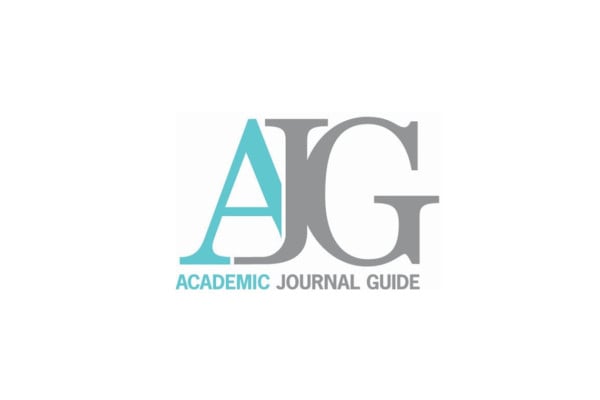
Chartered ABS appoints new co-editors for the Academic Journal Guide
The Chartered ABS has appointed Professors Dermot Breslin and Mehmet Demirbag as the new Co-Editors of the Academic Journal Guide. The Co-Editors will lead the production of the 2027 edition of the AJG and offer strategic guidance on how the Guide should continue to evolve and innovate in the years ahead.
- Home
- / Insights
- / Knowledge sharing
- / Exploring YETI as a framework for economic resilience
Exploring YETI as a framework for economic resilience

Authors

Afzal Sayed Munna CMBE
Senior Lecturer, Programme Lead (MSc Business Management) and Accreditation Lead, University of Hull London
Economies and universities that embody the principles of Youth, Entrepreneurship, Technology, and Innovation (YETI) are better equipped to thrive amid global disruption, suggests Afzal Sayed Munna, Senior Lecturer, Programme Lead (MSc Business Management) and Accreditation Lead, University of Hull London. In this blog, he illustrates how the YETI framework, that they have adopted in their MSc Business Management Programme, offers a powerful roadmap for cultivating these qualities.
In the 21st century, our world faces unprecedented challenges - from climate change and economic instability to rapid technological disruption and widening social inequalities. These pressures test the resilience of global economies and call for bold, innovative strategies focused on sustainable growth.
The YETI framework
One promising approach that resonates strongly with our teaching and practice at the University of Hull London, is the YETI framework, which stands for Youth, Entrepreneurship, Technology, and Innovation. This model highlights how these four interconnected pillars can drive resilience and sustainability in modern economies - values that are central to our MSc Business Management programme and our Design-Driven Business Innovation and Management module.
Why economic resilience matters
Resilience today is not merely about “bouncing back”- it is about adapting, innovating, and thriving amid uncertainty. Economies that can respond flexibly to global shocks, whether pandemics, climate crises, or geopolitical shifts, are better positioned for long-term, inclusive growth. Within our MSc programme, we encourage students to explore how frameworks, such as YETI, can translate theory into practical, impactful strategies. Through design thinking, business model innovation, and sustainability-focused projects, our students are learning to view resilience not as a reactionary measure, but as a strategic mindset for continuous evolution.
The four pillars of YETI and our learning community
1. Youth – Empowering the next generation of leaders
Our international students are at the heart of innovation. Each cohort of MSc Business Management students brings a wealth of cultural diversity, creativity, and ambition. They are redefining what it means to be global business leaders - designing new ventures, developing sustainable business models, and tackling real-world challenges through experiential learning and applied research. Their engagement in collaborative projects and case studies demonstrates the power of youth-driven innovation to reshape industries and communities. By empowering our students to lead with purpose and empathy, we nurture a new generation of business professionals who can drive positive social and economic transformation.
2. Entrepreneurship – Cultivating an innovative mindset
Entrepreneurship remains a key focus of the programme. Through modules such as Design-Driven Business Innovation and Management, students are challenged to think like entrepreneurs - identifying opportunities, assessing market gaps, and creating scalable solutions that balance profit with purpose. Our students’ entrepreneurial projects increasingly embrace green and social innovation, reflecting global priorities for responsible business. From sustainable tourism models to AI-driven solutions for circular economies, their work illustrates how entrepreneurship can strengthen both economic and environmental resilience.
3. Technology – Leveraging digital transformation for good
Technology is not just a tool - it is a transformative force shaping the future of business and society. Within our teaching, we emphasise digital literacy, data-driven decision-making, and ethical technology use. Students explore the implications of artificial intelligence, the Internet of Things (IoT), and blockchain in business operations, using these insights to design smarter, more transparent, and more sustainable organisations. Recent student projects have explored digital innovation in hospitality, fintech, and social enterprise - demonstrating how technology can be harnessed to improve access, equity, and efficiency across industries.
4. Innovation – Embedding creativity into strategy
Innovation underpins all aspects of our learning environment. Our teaching philosophy integrates design thinking, systems innovation, and experiential learning, encouraging students to challenge assumptions and generate original solutions. The faculty team has worked diligently to raise academic and professional standards, continuously updating teaching materials, assessment methods, and industry collaborations. This commitment ensures that our students graduate not only with theoretical understanding but with practical innovation skills ready to apply in global contexts.
Faculty commitment to excellence
Our faculty team remains deeply committed to enhancing student experience and academic rigor. Through cross-disciplinary collaboration, research-informed teaching, and engagement with industry partners, we continue to raise standards and align our curriculum with the evolving global business landscape. The integration of sustainability, ethics, and innovation across our modules ensures that our graduates are not only employable but also responsible and reflective practitioners who can lead with integrity and creativity.
Key takeaways: YETI in action
The evidence is clear: economies - and universities - that embody the principles of Youth, Entrepreneurship, Technology, and Innovation are better equipped to thrive amid global disruption. Our MSc Business Management students exemplify this philosophy through their curiosity, resilience, and dedication to positive change. By nurturing their potential and fostering a culture of innovation, we are collectively contributing to a more adaptive, inclusive, and sustainable future.
Looking ahead
The challenges of our time require more than traditional economic or educational models. They call for resilience, adaptability, and collaboration. The YETI framework offers a powerful roadmap for cultivating these qualities - not only in economies, but within academic communities.
As Programme Lead, I am inspired by the growth, creativity, and determination our students demonstrate each year. With the continued support of our faculty team and our commitment to design-driven learning, we are shaping leaders who can navigate uncertainty with confidence, compassion, and innovation.
The call to action is clear
Empower youth. Foster entrepreneurship. Leverage technology. Drive innovation.
Together, we can build resilient economies - and resilient minds - for a sustainable global future.
Learning, Teaching & Student Experience (LTSE) 2026 will take place on 18-19 May 2026 in Manchester.
To apply to present at the conference, please visit: LTSE 2026 Submission Portal
Deadline for submissions: 30 January 2026

